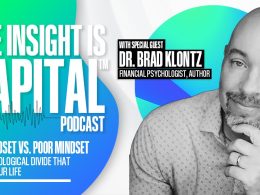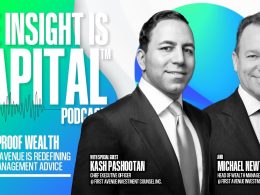6 Ways Pokémon GO Is Changing How We Do Business
by Commonwealth Financial Network
 If you haven’t heard of Pokémon GO, I can only imagine that you’ve been vacationing on a remote island or in the middle of Siberia. Since its release in early July, the game, a modern-day iteration of the original Pokémon trading card game, has seen unprecedented success. The uber-popular app has already been downloaded tens of millions of times, and Nintendo’s stock is up more than 60 percent in the past month (although Nintendo recently said that its exposure to profits would be limited). Never has a mobile app game been so hyped—and for good reason, I think.
If you haven’t heard of Pokémon GO, I can only imagine that you’ve been vacationing on a remote island or in the middle of Siberia. Since its release in early July, the game, a modern-day iteration of the original Pokémon trading card game, has seen unprecedented success. The uber-popular app has already been downloaded tens of millions of times, and Nintendo’s stock is up more than 60 percent in the past month (although Nintendo recently said that its exposure to profits would be limited). Never has a mobile app game been so hyped—and for good reason, I think.
My 15-year-old daughter hopped on this game the day it was released. She eventually convinced my wife to join, who then convinced me to join. This became the impetus for us to buy my 12-year-old son his first phone so that he could join, too. And that, in and of itself, exemplifies one of the many strengths of this game: it can bring families together (mobile and video games often do the opposite).
But Pokémon GO is more than just a game. After playing it for a week, I’m convinced that it will not only usher in a new chapter of gaming for humankind, but that it will teach us lessons that will change how we do business. You may think this is a bold statement. How can a game change our approach to business? Let me explain.
1) It’s bringing families and generations together. The fact that kids and parents can go out “Pokémon hunting” together as a team—or even as rival teams—is fun. But when I first witnessed a 75-year-old man playing Pokémon GO with his granddaughter, I knew this was something more. While the original Pokémon game was largely popular with 10- to 12-year-old boys, the new game is appealing to nearly every demographic.
How can this change your business? Anything businesses do to help connect family members in general is a positive. For financial advisors, one big risk they face is losing their clients' children (and assets) to another advisor after a client passes away. It goes without saying that finding creative ways to help your clients’ families connect across generations—and with your brand—will pay dividends.
2) It’s making us feel part of a community. In general, I’ve talked with more random people in the past couple of weeks than I think I’ve talked with in the past year. That’s because PokéStops and Pokémon gyms are static and people flock to them. (If you don’t know what these are, check out Wikipedia’s description of the game.) Additionally, so far in my experience, there seems to be a bond between Pokémon GO players that is fun and genuine.
For example, one very cool aspect of the game is the concept of “lures.” Lures are not easy to attain—unless you buy them through the app—and they attract wild Pokémon to PokéStops without your having to move from that spot. (Okay, so this is the lazy part of the game.) If you use one of your lures, everyone playing Pokémon GO within about a one-half-mile radius will see it and can benefit from it. I’ve witnessed individuals thanking total strangers for their generosity.
How can this change your business? When people feel part of something bigger than themselves, they develop a profound appreciation for that connection. At Commonwealth, one of the most popular activities at our many conferences is our Commonwealth Gives Back program. We partner with a local organization—Habitat for Humanity or the Boys & Girls Club, for example—and invite home office staff, our affiliated advisors, and their guests to roll up their sleeves and make a positive difference in the world.
Do you hold your own giving back initiatives? The next time you hold a food drive or offer a book swap, consider putting signage outside your office to promote the event and invite your local community to participate. Then, if your business is lucky enough to be a PokéStop (or if you want to submit a request to become one), consider dropping lures at a set time each day. It would cost you about $1 per day to do this, and the increased traffic in front of your building could ultimately lead to extra donations to your giving back initiative—and perhaps even a new prospective client or two.
3) It’s taking gamification to the next level. Many companies have implemented a “badge” or “medal” system for social media and marketing purposes. Pokémon GO is built on the same psychological principles that drive such programs, and once you get started earning rewards, it’s hard to stop.
How can this change your business? This one’s a little tricky to implement on your own, but think about fun ways to get your clients more involved in their financial planning. If they’re struggling to set aside money for a child’s college fund, for example, maybe you give them a gold star each month they contribute to the account. Once they get 12 stars, you’ll take them out to lunch.
In the next few years, Commonwealth intends to introduce some sort of badge/medal system into our client-facing tools on our advisors’ behalf, as we know how much people like to compete.
4) It’s opening our eyes to the real world around us. It’s hard to believe, but the most popular game in the world right now is teaching us about the areas where we live and work. I’ve learned more about landmarks in my town in the past week than in the 12 years I’ve lived there.
How can this change your business? Appreciation events are an excellent way to develop greater rapport with your clients. In every town in the U.S., there are treasures that many people either don’t know much about or don’t know exist at all. Hold a client appreciation event at one of these lesser-known venues; throw in some finger food and libations and you’ve connected your clients to the community in which they live. And I’m sure they’ll spread the word that they were there . . . because of you!
5) It’s taking augmented reality (AR) mainstream. One of the best parts of this game is the introduction of AR into mainstream gaming. AR is nothing new, but it is new to the masses. Overlaying a game like this on a map of the U.S. (or other countries) is a game-changer.
How can this change your business? I’m not sure yet, but I bet it won’t be long before we know.
6) It’s keeping people active. One of the many brilliant aspects of Pokémon GO is that you have to go to the game; the game does not come to you. Although the details of how to play this game are outside the scope of this blog post, players have to do a lot of walking. PokéStops, Pokémon gyms, and wild Pokémon are all found out in the real world, not from the living room sofa. By way of example, I walked more than 20 kilometers in the first week with my family, and I’m pretty sure I would not have done so otherwise.
How can this change your business? Health and wellness—both financial and physical—are important topics in our industry today. As you work to help ensure that your clients have enough money to retire comfortably, why not find ways to help them stay active as well? Organize a team for Walk for Hunger; start an exercise club with a group of A clients and get together to play basketball or go for a swim or run on a Saturday morning; or, if you have a nice space for it at your business, hire a yoga teacher to come in and offer a class on your lawn.
Pokémon GO is representative of how people are interacting with technology and the world around them today. But it’s not all rainbows and lollipops. Some news stories have reported that players have been “lured” into trespassing on private property and walking off cliffs; some have even walked unsuspecting into a robbery in progress. While there are always some downsides to change and disruption, I believe this summer marks a huge turning point for the future of gaming—and a huge opportunity for financial advisors to change the way they do business for the better.
Have you or your clients played this game? What do you think about this opportunity to change how we do business? Share your thoughts below!
Commonwealth Financial Network is the nation’s largest privately held independent broker/dealer-RIA. This post originally appeared on Commonwealth Independent Advisor, the firm’s corporate blog.
Copyright © Commonwealth Financial Network
















